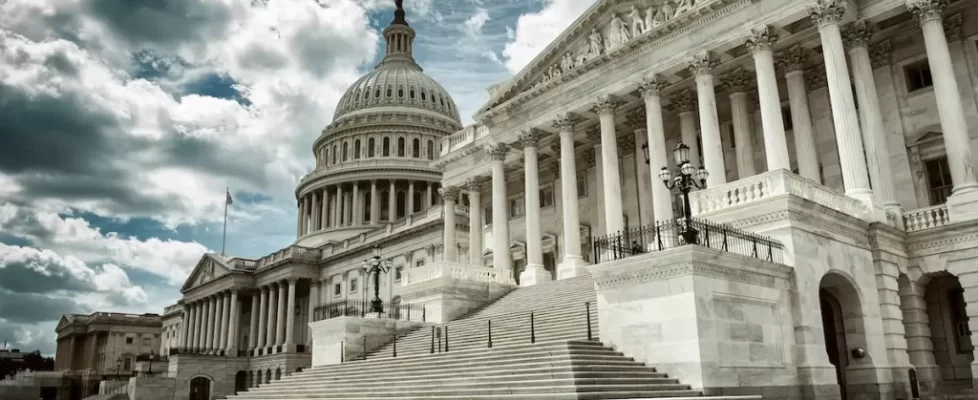U.S. health care will suffer if lawmakers don’t act by end of 2022
Time is running out for Congress to take action on pending legislation dealing with issues that would help primary care across the United States.
Six physician groups representing 590,000 doctors across the country sent a joint letter again urging congressional leaders to vote – soon – for bills relating to Medicare reimbursements, prior authorizations, children’s health insurance coverage, mental health, telehealth, and aid for resident physicians in primary care.
Time is of the essence, said the Dec. 2 letter by the American Academy of Family Physicians, American Academy of Pediatrics, American College of Obstetricians and Gynecologists, American College of Physicians, American Osteopathic Association, and American Psychiatric Association.
“As we approach the end of the 117th Congress, we urge Congress to act on the important items described below to ensure our patients have access to quality, affordable, and accessible health care,” the letter said.
The issues
The bill: House Resolution (HR) 8800, the Supporting Medicare Providers Act of 2022
The issue: The Medicare Physician Fee Schedule (MFPS)
Physicians, health care administrators, and their supporters hope to avert a 4.42% cut to physician payments scheduled in 2023. Medicare reimbursement involves “a very complex set of budgetary rules and systemic flaws” in the MFPS “that, unless addressed in a comprehensive way, will continue to plague physicians for years to come.” Payment rates are not keeping up with inflation and are not sustainable for physicians to cover basic expenses such as staff salaries, rent, or new technology.
The bill: HR 3173, the Improving Seniors’ Timely Access to Care Act
The issue: The bill would standardize and streamline the prior authorization approval process in the Medicare Advantage program. The bill has passed in the House of Representatives and has at least 43 bipartisan cosponsors in the Senate. Proponents argue the bill would improve health care for seniors by speeding up access, while removing paperwork headaches for physicians and staff.
The issue: Medicaid’s Children’s Health Insurance Program (CHIP)
Medicaid and CHIP cover 42% of all births in the country. When the COVID-19 pandemic public health emergency (PHE) ends, so will coverage for an estimated 5 million children, along with postpartum females. Enacting 12 months of continuous eligibility for them “will ensure that children and new mothers can rely on coverage and will save states the administrative cost associated with churn,” or those who will lose insurance when the PHE ends.
The issue: Mental health care
A comprehensive legislative package must address growing mental health issues and substance use disorder (SUD). Four potential solutions:
- Promote behavioral health services in primary care.
- Strengthen the behavioral health workforce with money for graduate medical education for psychiatric residencies and for loan repayment programs.
- Enhance promotion, prevention, and early intervention with more money for community health and mental health centers and schools.
- Enforce mental health/SUD parity laws.
The issue: Telehealth
Congress should extend Medicare telehealth flexibilities at least to Dec. 31, 2024, including coverage for audio-only services, to ensure access for beneficiaries and financial stability and regulatory clarity for physicians. Medicare telehealth access will continue for 151 days after the end of the COVID-19 PHE, but that limited extension and ambiguity about the end of the PHE leaves physicians and patients in a state of uncertainty.
The issue: Teaching Health Center Graduate Medical Education (THCGME)
Residents who train through THCGME are more likely to focus on primary care and more likely to remain in underserved or rural communities. The program is successful in tackling physician maldistribution, but the medical groups “have grave concerns for the financial stability of programs for the upcoming year.” Flat funding could put programs at risk of closure, the medical groups said.
Recipients
The letter was sent to House Speaker Nancy Pelosi, House Minority Leader Kevin McCarthy, Senate Majority Leader Chuck Schumer, Senate Minority Leader Mitch McConnell; Rep. Frank Pallone and Rep. Cathy McMorris Rodgers of the House Energy & Commerce Committee; Rep. Richie Neal and Rep. Kevin Brady of the House Ways & Means Committee; Sen. Ron Wyden and Sen. Mike Crapo of the Senate Finance Committee; and Sen. Patty Murray and Sen. Richard Burr of the Senate Health, Education, Labor, & Pensions Committee.

